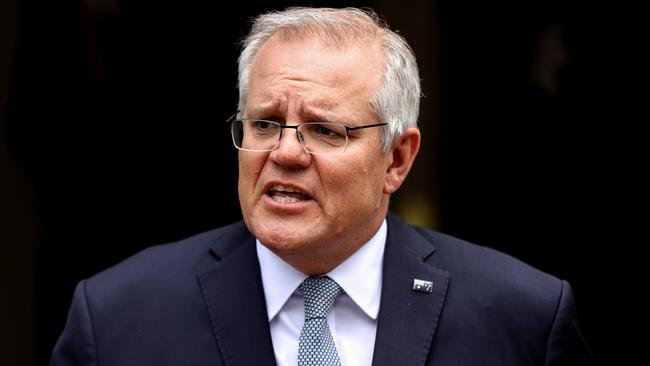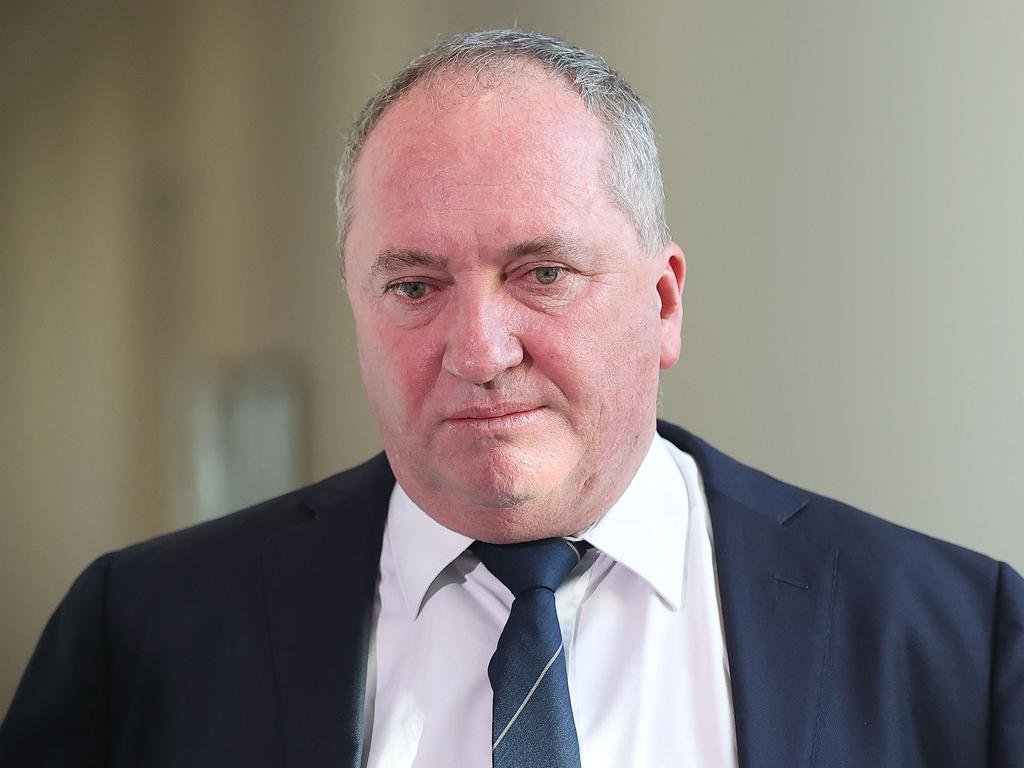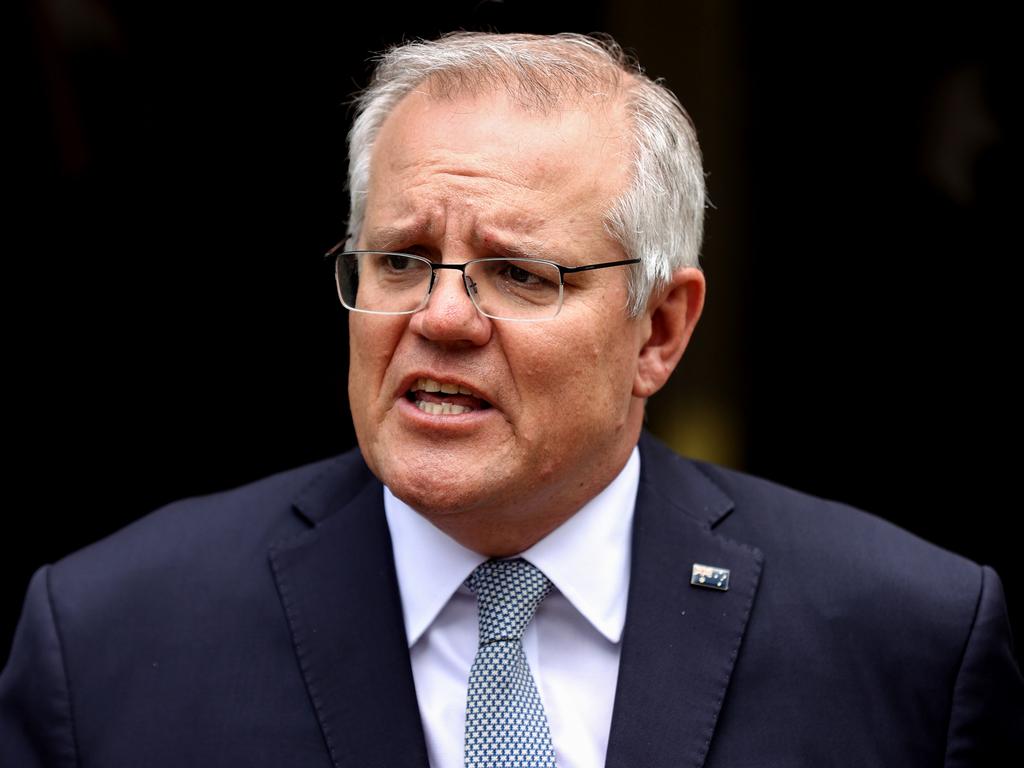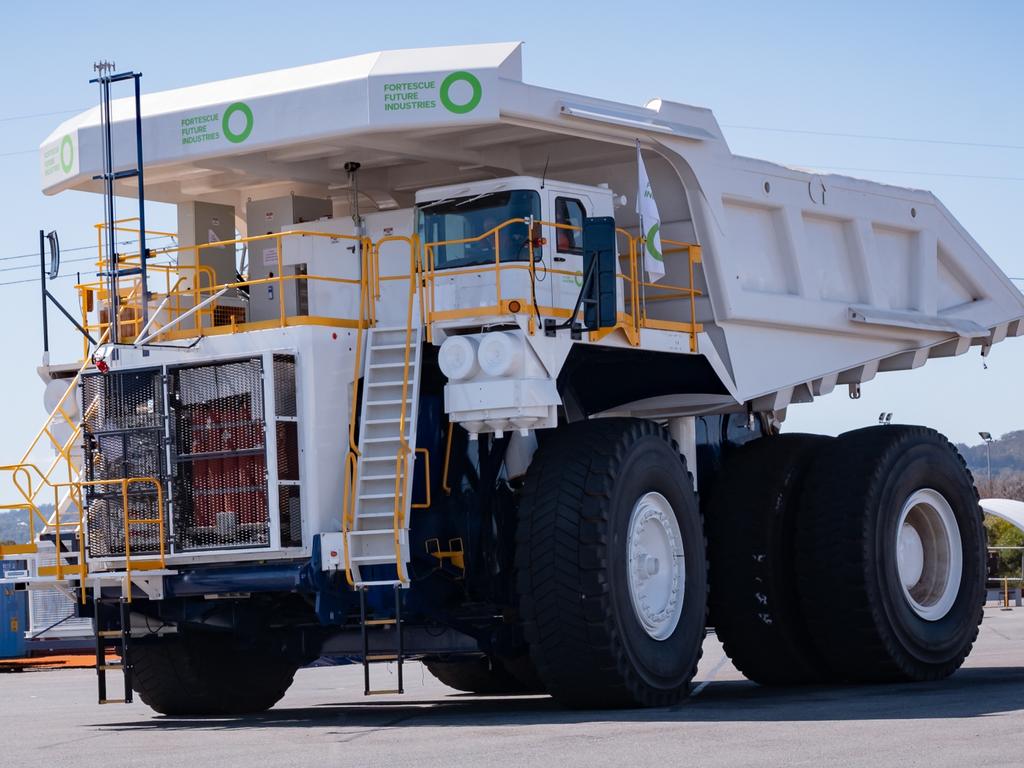Scott Morrison’s national security argument for net zero
Gas, resources and agricultural exports will exceed current levels by mid-century, finds analysis underpinning the PM’s net-zero plan.

Confidential modelling underpinning Scott Morrison’s plan to meet a 2050 net-zero target shows gas, resources and agricultural exports will continue to grow and exceed current levels by mid-century, as the Liberals and Nationals edge closer to securing a deal on a Glasgow climate change package.
The Australian can reveal detailed analysis provided to cabinet projects the nation will remain one of the world’s leading energy exporters in 2050 at the same time as achieving the government’s long-term net-zero emissions-reduction strategy.
Senior government sources said rolling meetings between the Prime Minister and Nationals leader Barnaby Joyce, focused on the junior Coalition partner’s demands for more information on economic modelling and a long-term guarantee for the agriculture sector, were expected to be finalised within days.
If all demands and clarifications from the Nationals are answered, a deal could be reached by Sunday pending majority support from the Nationals’ partyroom.
At a partyroom meeting on Monday, Nationals MPs drew up a list of demands in response to modelling that forecasts a boom in regional jobs, new industries and low-emissions technologies, questioning whether assumptions about the development of hydrogen and other green energy sources were achievable.
Mr Morrison on Monday said he would take a net-zero target to the UN climate change conference in Glasgow, but ruled out changes to Australia’s 2030 Paris agreement in a bid to win Nationals support and avoid a damaging Coalition split.
At a Liberal party room meeting on Monday, the Prime Minister told MPs that climate change action was central to strengthening alliances with western powers and that the long-term emissions reduction strategy would include a “nationally determined commitment” to achieve net zero by 2050.
After securing the AUKUS military pact with the US and UK, Mr Morrison said Australia needed to rely on western alliances “now more than ever” and a net-zero commitment was important for the nation’s standing in the international community.
The Australian has confirmed the government’s 2050 net-zero plan shows agriculture, resources and gas exports to be higher by both volume and value in 2050 than current levels. Strong demand is also expected to continue for high-quality coal over the coming decades.
The assumptions, briefed to Nationals and Liberal MPs, set up a political clash with Labor by giving assurances to regional communities that traditional industries will continue to grow while satisfying demands for a net-zero emissions target.
Energy and Emissions Reduction Minister Angus Taylor said the plan positioned Australia to take advantage of new economic opportunities while continuing to serve traditional markets and blue-collar jobs.
“We’ve built some of the world’s largest and most important energy and resources supply chains into strong, fast-growing export markets across our Indo-Pacific region,” Mr Taylor said.
“Australia will continue to take action in a practical, responsible way that is in our national interest. We will not put industries, regions or jobs at risk … We will focus on net zero, not absolute zero emissions, recognising the important role of traditional industries and Australia’s natural carbon sinks.”
Mr Taylor said Australia was “blessed” with natural resources across traditional energy sources.
Australia is the world’s fourth largest energy exporter, behind Russia, Saudi Arabia and the US and was expected to remain so under the government’s 2050 net zero plan.
Despite speculation over multi-billion-dollar packages, senior government sources said no final deals had been made in meetings between Mr Morrison and Mr Joyce. But it was increasingly likely that, if a majority of Nationals and Liberal MPs supported the net-zero plan, it would be approved by cabinet before Mr Morrison travelled to the COP26 summit, which starts on October 31.
Ahead of Tuesday’s joint Coalition partyroom meeting, Mr Morrison said “the government’s decision on the government’s commitments for Australia in relation to COP26 will be made by the government in cabinet”.
The net-zero plan will not be legislated, meaning a vote of the joint Coalition partyroom is not required.
Mr Morrison said investing in technology allowed greater emissions reductions in the “longer term”, lashing out at Labor’s 2019 election policy for a 2030 target of 45 per cent.
“At the last election, we rejected a 45 per cent emissions reduction target followed by those opposite, and it wasn’t just us who rejected it, the Australian people rejected it,” Mr Morrison said. “They supported our policy of 26-28 per cent to meet that target and beat that target.”
Ahead of Glasgow, the government will release updated medium-term emissions reduction projections showing Australia is on track to beat its Paris commitment, likely reaching 32-36 per cent by 2030.
Amid anxiety among Nationals and conservative Liberals, moderate Liberal MPs said they understood that adopting a new 2030 target would be electorally difficult for the Coalition and were happy with a compromise of net zero by 2050. Conservative Liberals said their hope was that Labor would differentiate itself by adopting more ambitious 2030 targets.
Anthony Albanese refused to rule out Labor recommitting to Bill Shorten’s 45 per cent emissions reduction target by 2030 and said the Morrison government “can’t be taken seriously” unless it legislated a net-zero emissions target.
“We need a ‘net zero by 2050’ target that is legislated. We also need interim targets that show the pathway to get there,” the Opposition Leader said.
Nationals deputy leader David Littleproud, who is understood to be in favour of adopting a 2050 net-zero target, said this was a chance to bury the climate wars “once and for all”.
“There is fatigue out there. People just really want us to get on with a solution,” Mr Littleproud said. “Zealots from both sides really need to bugger off.”
Mr Taylor told MPs the pathway to net-zero would be “jobs positive” in every state and territory if Australia had proactive policies. He said it would be “jobs negative” if Australia did not prepare for the transition.
There were cautionary questions raised about the net zero plan in the Liberal Party room meeting by Gerard Rennick, Tony Pasin, Rick Wilson, Rohan Ramsey and Eric Abetz.







To join the conversation, please log in. Don't have an account? Register
Join the conversation, you are commenting as Logout